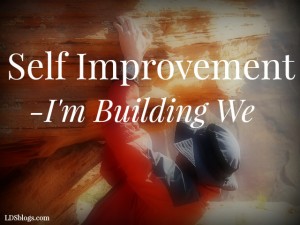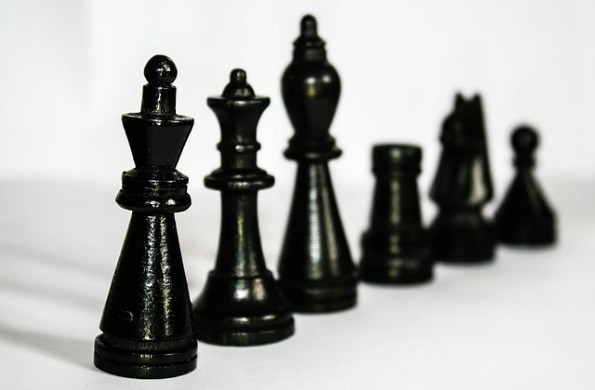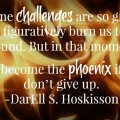Evaluation is an art. While essential for growth, it is also potentially destructive, even devastating. Timely evaluation has the power to move us in the right direction, like adjusting our sails to catch the wind, but untimely or thoughtless judgement can have just the opposite effect.
I have a friend that is a new headmaster at a private school. Half way through the first semester he was experiencing the untimely evaluation of the teachers. He said it felt like he was leaping over a river and someone had just caught his heel. I loved that expression because isn’t that just how it feels sometimes? We have to have courage to set out in new, wonderful directions and once we make that commitment, it is a lot like taking a big leap. We don’t want to fall on our face! Getting tripped up in the middle can be devastating because without continued faith and inertia, the needed effort to make it successful can fall off making what would have been a possible success into a certain failure or loss. This is true for individuals and cooperative groups. To be successful, we must be strategic about how and when we evaluate our experience.
When not to Evaluate: In Progress
I’ve never had a good performance when I started to evaluate my class or my music during showtime. Evaluating during your execution makes you self-conscious and takes your mind off the very thing you need your full concentration on. An essential ingredient to success is focused, goal directed activity, and it isn’t on judging yourself and others.
 Recipe for failure:
Recipe for failure:
Step 1: Decide what you want to do
Step 2: Decide how you want to do it
Step 3: Wonder every moment if you are doing it right
Step 4: Wonder if some other way would have been better
Step 5: Wonder if someone else could have done it better
Step 6: Wonder how your audience or customer is perceiving you
Step 7: Worry about what you look like
Step 8: Take everything others do or say personally, their opinion is the truth about you
Step 9: Make a list of obstacles and excuses for your boss, take no action to fix surprise roadblocks for yourself
Step 10: If you managed to get anything done at all with all that worrying, be sure to quit because no one can go through all that again.
When to Evaluate: Before
It is essential that we carefully judge our options to determine which goals and paths to pursue. There are many ways to reach a particular goal. Just like there are many coaches who lead many different teams to the superbowl. There may not be a “right” way, but one thing is certain, if you can not decide and agree on a path, the team is not going to make it to the superbowl. We do have to carefully uncover and evaluate all possible and possibly best options before starting on our quests. Often the final decision for group actions falls to the leader.
As a leader, I find it really helpful to listen to suggestions before deciding on a group path. And, I realize that many other paths may be just as good! But, unless the team can unite and stop questioning the task at hand, we aren’t going to get anywhere. Good team members understand this. Unity of purpose is extremely important for group success, more important perhaps than even a good plan. A good team can make even a bad plan work, but no plan, no matter how perfect, can work with a team that is contrary, withholding effort, finding fault and constantly criticizing.
When to Evaluate: After
 After the event or experience, I think, is the very best time to evaluate. If I am overly emotional, I might feel super high or super low. That moment may not be the best because I am emotionally “charged.” But soon after, while the memory is fresh and any burst of emotion has cooled a bit, is a great time to evaluate what we did and how it turned out.
After the event or experience, I think, is the very best time to evaluate. If I am overly emotional, I might feel super high or super low. That moment may not be the best because I am emotionally “charged.” But soon after, while the memory is fresh and any burst of emotion has cooled a bit, is a great time to evaluate what we did and how it turned out.
As a group, it is great to have each person own what went well and point out the strengths of the experience. For our girls camp fundraiser recently, we noticed that the event itself was a complete success! The success of the event was just as much or more the result of those that came to our event as it was of those that planned and participated. As a whole, it was very successful. We met the financial goal in one evening. But that doesn’t mean that everything was perfect. There was still so much to learn from this experience.
How to Evaluate: Same and Different
I am sure there are more complicated ways, but one simple way I love to evaluate is just to get a blank page and write on one side, “Same” and on the other side, “Different.”
Then alone or in the group, you can think through all the details. What did you love about the parts that made up the whole? What went well? What would you like to duplicate next time or in the future?
On the other side, I just list what I or we wish was different. The different side can hash out all the things you hated, like cleaning smooshed cupcake out of the carpet afterwards. These things can be adjusted or avoided next time.
Adjust: Don’t Lose the Lesson
It is so easy to know what to do the same and different based on experience. It is another thing entirely to do what we know. The challenge of taking what we know and moving it into what we do is fascinating to me. Surprisingly, just because we know better doesn’t mean we will automatically do better. We have to outsmart our automatic selves. I think it is essential to be very, very intentional to both remember and implement the things I’ve learned. Just expecting it to happen isn’t going to make it happen.
It isn’t about me
My dad taught me that when speaking, if you get self-conscious, it is like looking into mirrored glass. You can’t see the audience on the other side. All you can see is yourself. He said that when he focused on the people he was talking to, how he cared about them and the message he was trying to share, then his reflection faded away and the meaning got through.
Recently I started to get self-conscious about my group fitness class because one day I had had a particularly rough beginning. Arriving slightly later than usual, I discovered that my music player was almost out of batteries, the speakers were not in the room, and when I got it finally all set up late, the music started cutting out and was very distracting. This confusion infected my focus, and the whole class seemed choppy and frustrating to me. I caught myself doubting the compliments that many in the class gave me that day and the day after. I felt like that class had been a disaster.
 The next day I prayed for help for my class and had the unique experience of being able to comfort someone in their grief. This moment changed me. It was so, so precious. I felt so honored. It comforted me. And, I remembered what I know but had forgotten to do.
The next day I prayed for help for my class and had the unique experience of being able to comfort someone in their grief. This moment changed me. It was so, so precious. I felt so honored. It comforted me. And, I remembered what I know but had forgotten to do.
My fitness classes aren’t about me. Duh. And it is true that someone else probably could do them better, but it isn’t someone else’s class. Duh! “If it is to be, it is up to me,” flies into my mind. But, again, it isn’t about me! Just like a good team can make a bad plan a success, a good class can find the good in a mediocre teacher or presentation.
Feed Them
Thomas Moore in his book, A Life at Work: the joy of discovering what you were born to do, says that if you can not do what you do with love, it would be better for you to sit there and not do anything. He says this because what we need is not just a service, but someone who cares about us. Giving service without love is only half a meal.
I was reminded that I don’t teach group fitness for a perfect execution every time. I do it as my way of showing love and to help people live well. People can exercise alone or with the TV or internet. People don’t come to group fitness just for the exercise. We need more than that. We need each other.
I decided that even if my “vegetables” were sometimes lacking, from now on I will not forget the main dish. I love. I care. You are important–to me and especially to those around you. I can and will share that!
May your evaluations lead you back to what really matters.
Catch the vision–

To read all of DarEll’s articles, click on the picture.
And, really feed them.
Namaste,
DarEll S. Hoskisson
About the Author
DarEll S. Hoskisson loves to do hard things, but not too hard. She shares her own challenges, goals and experiences as she guides you into a realistic path of self-reflection and self-improvement. She shares tips on how to find, know and trust yourself so you can decide if other’s suggestions are right for you.
DarEll has the world a little upside down—where work is play and play is work. She actually thinks other people’s problems are fun to try to solve and lights up with a personal challenge. She loves people, harmony, and excellence. She also loves useful things like tools and ideas that make work faster, easier and more fun.
DarEll married in 1993 and graduated from BYU (1995) with a bachelor’s degree in English and Secondary Education. Since then she was adopted by 5 children and has worked with many non-profits. She is currently a certified personal trainer and group fitness instructor—leading pilates and yoga at her local YMCA.
DarEll lives in Florida where she enjoys her family, nature, her work, and encouraging people to live well.
She periodically posts her poems, what she is learning, and service opportunities on her personal blogs:
https://personalabridgements.wordpress.com and https://darellhoskisson.wordpress.com
About DarEll Hoskisson
DarEll S. Hoskisson loves to do hard things, but not too hard. She shares her own challenges, goals and experiences as she guides you into a realistic path of self-reflection and self-improvement. She shares tips on how to find, know and trust yourself so you can decide if other’s suggestions are right for you.
DarEll has the world a little upside down—where work is play and play is work. She actually thinks other people’s problems are fun to try to solve and lights up with a personal challenge. She loves people, harmony, and excellence. She also loves useful things like tools and ideas that make work faster, easier and more fun.
DarEll married in 1993 and graduated from BYU (1995) with a bachelor’s degree in English and Secondary Education. Since then she was adopted by 5 children and has worked with many non-profits. She is currently a certified personal trainer and group fitness instructor—leading pilates and yoga at her local YMCA.
DarEll lives in Florida where she enjoys her family, nature, her work, and encouraging people to live well.
She periodically posts her poems, what she is learning, and service opportunities on her personal blogs:
https://personalabridgements.wordpress.com and https://darellhoskisson.wordpress.com
Twitter •







My hubby used to quote Socrates I think it was, about the lack of value in an unexamined life. It helps to know better how to evalute as we move forward. Thank you.